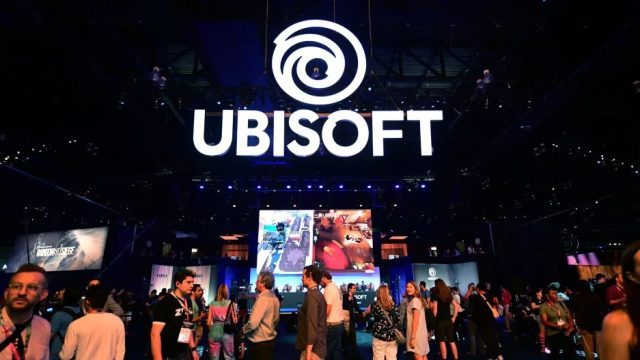- | 3:39 pm
Ubisoft could be the next big video game acquisition, but it’s hardly a sure thing
Ubisoft CEO Yves Guillemot doesn’t think like a lot of other game company execs.

Consolidation in the video game industry hasn’t been this robust for over a decade. And while rumors are swirling about plenty of potential next targets, no company is being talked about as frequently as Ubisoft.
The gossip mill makes a lot of sense. Ubisoft’s stock is well off of its 52-week high, down 30% from the peaks it hit last May, and it’s trading for less than half of what it did in July 2018. The game publisher also has a rich catalog of O&O franchises including Assassin’s Creed, the Rabbids, Prince of Persia, and Watch Dogs, as well as locked-in licensing deals with heavyweights like Tom Clancy and South Park—all of which make it an attractive addition to any publisher’s stable.
Given the price at which other publishers have been selling—$69 billion for Activision-Blizzard, $12.7 billion for Zynga, and $3.6 billion for Bungie—Ubisoft would likely command a hefty premium. For most companies, that would be a fairly easy decision; but Yves Guillemot, CEO of Ubisoft, doesn’t think like a lot of other game company execs.
From 2009 to 2019, I interviewed Guillemot on a fairly consistent basis, meeting every year at E3 and occasionally speaking when events warranted. He’s someone whose enthusiasm drives him, whether it’s his love of Swiss dark chocolate or Harley motorcycles. But all of those passions pale compared to his feelings for Ubisoft.
This was never more apparent than during the period from 2016 to 2018, when the company fought off a hostile takeover attempt from Vivendi. The company issued detailed, long-term financial forecasts and met with large stakeholders individually. And Guillemot dropped hints of a mass employee exodus if the takeover were successful.
As Vivendi bought more shares and held more of the company’s voting rights than the Guillemot family, he began hunting for partners. He ultimately found them in Tencent (the massive Chinese gaming company) and the Ontario Teachers Pension, who paid just over 2 billion euro to Vivendi to buy out its shares (giving Tencent a 5% stake in the company).
Had the deal with Tencent not worked out, Guillemot told me at the time, another gaming company was battling to buy into Ubisoft.
Things are a lot different in 2022, of course. An offer from Microsoft or Sony (or even Embracer Group) would likely be given more serious consideration than the Vivendi bid. But analysts think Ubisoft will at least attempt to remain independent, and is already sniffing around for a private equity investor.
“We believe that a deal involving private equity (PE) only makes sense if the buyer is willing to give management the time and resources that it needs to turn things around, as well as assurances that its workforce will be largely spared from cost reduction efforts,” said Michael Pachter of investment firm Wedbush in a note to investors earlier this week. “The better outcome for investors, on the other hand, may be a bidding war that sees Ubisoft acquired by a strategic buyer, but the board of directors and the Guillemot family may prefer the PE route.”
History backs up that assumption. Long before the Vivendi offer, when the French media conglomerate bought 15% of the company’s stock, Ubisoft rejected, then battled, Electronic Arts’ attempt to take over Ubisoft. (EA bought a nearly 20% stake in 2004 but ultimately sold it off by 2010.)
If Ubisoft does find itself the target of a company Guillemot and his brothers don’t feel will be a good fit, and private equity doesn’t appear to be on the horizon, it’s likely he’ll still lead the board in a fight against the takeover.
Of course, there’s a danger in looking too far back for guidance on the future. Ubisoft was a different company during the Vivendi battle. It got a big endorsement in 2017 when Nintendo icon Shigeru Miyamoto appeared on stage at its E3 press conference. Titles like Watch Dogs 2 and Assassin’s Creed: Origins rode high on the sales charts. And it regularly beat quarterly earnings estimates.
For fiscal 2022, which the company will report today, Ubisoft has already warned it was operating in the low ends of its guidance. And Pachter expects the company to miss even that target. And, of course, Ubisoft has been rocked by numerous harassment and misconduct allegations since June 2020. (Ubisoft acknowledged last year that its response to the accusations was flawed and cost the company its employees’ trust.)
The video game industry is a lot different as well. Microsoft is going all in on its Netflix-like streaming model in Game Pass. And Sony is starting to realize it will have to compete on that front eventually. (After the Bungie purchase, Sony Interactive Entertainment CEO Jim Ryan said players and investors “should absolutely expect more” acquisitions.)
It’s a different world with different stakes. The question is: How will Yves Guillemot choose to play if he’s invited into the game?







































